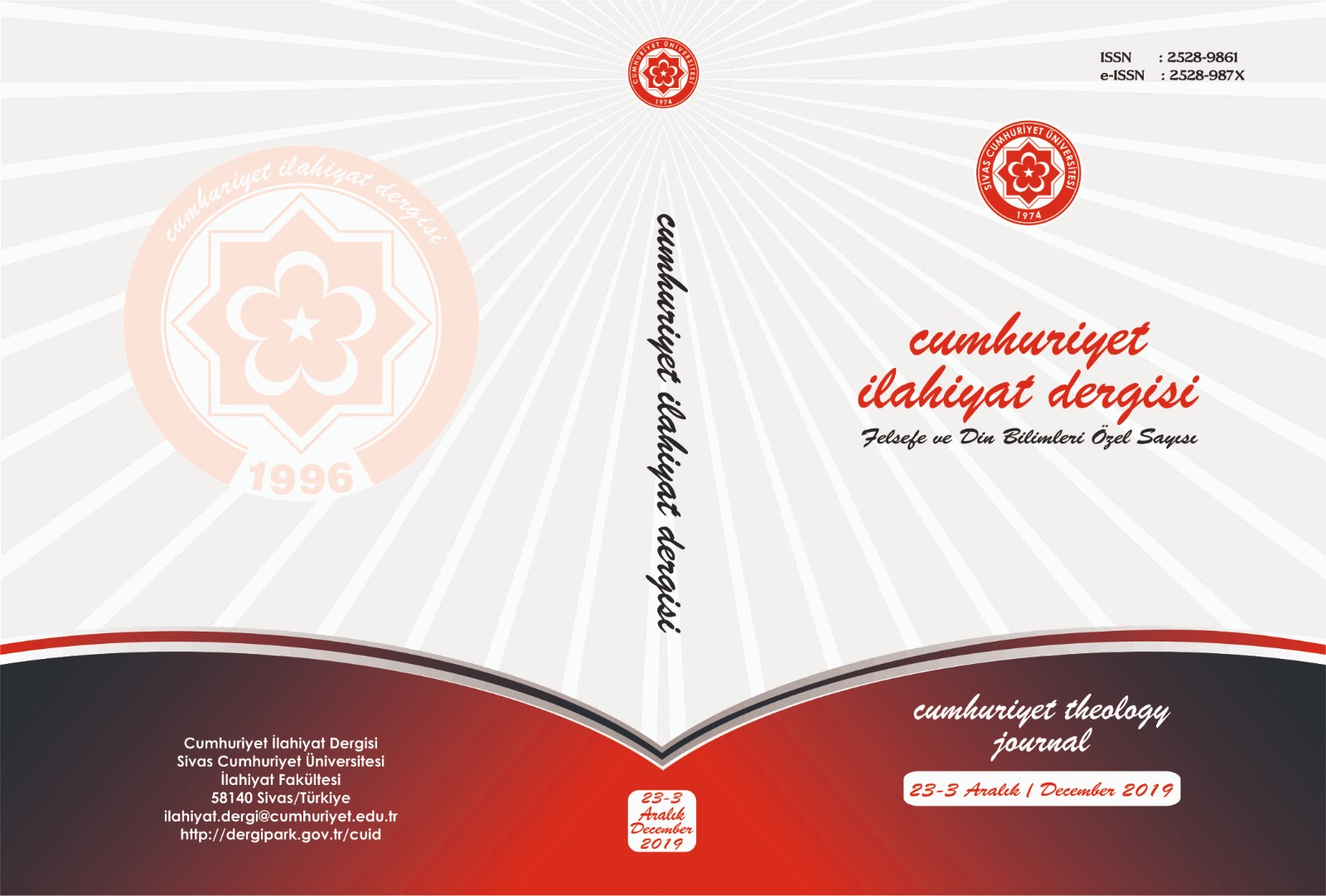İlahiyat Fakültesi Öğrencilerinin Öğrenim Düzeylerinin Umut Düzeylerine Etkisine Dair Ampirik Bir Araştırma (Erzincan Binali Yıldırım Üniversitesi İlahiyat Fakültesi Örneği)
An Empirical Research on the Effects of the Education Levels of Theology Faculty Students on their Hope Levels (Erzincan Binali Yıldırım University Theology Faculty Case)
Author(s): Fatih KandemirSubject(s): Education, Theology and Religion
Published by: Cumhuriyet Üniversitesi İlahyat Fakültesi
Keywords: Psychology of Religion; Faculty of Theology; Religious Education; Hope; Karaca-Kandemir’s Hope Scale;
Summary/Abstract: The current study aims to examine the hope levels of theology students in the context of their education level. The correlational (relational) screening method was used in this study. The sample of the study consists of a total of 429 students (328 girls, 101 boys) studying at the Faculty of Theology at Erzincan Binali Yildirim University. Hope levels of the students were determined by Karaca-Kandemir Hope Scale developed by Karaca and Kandemir. The scale consists of three sub-dimensions: goal-oriented, hope and significance, and stability. One-way analysis of variance (ANO-VA) was used for data analysis. According to the findings obtained as a result of the analysis, it is seen that the education levels of the Theology Faculty students cause differentiation in terms of goal-oriented and stability which are subdimensions of hope; however, it was found that the scale did not cause any difference in terms of hope and meaningfulness subscale and total hope levels. This finding did not corroborate the research hypothesis that the higher the education level of theology faculty students, the higher their hope level. The results, however, give an idea that theology education can have a positive effect on students' hope levels.
Journal: Cumhuriyet İlahiyat Dergisi
- Issue Year: 23/2019
- Issue No: 3
- Page Range: 1403-1418
- Page Count: 16
- Language: Turkish

